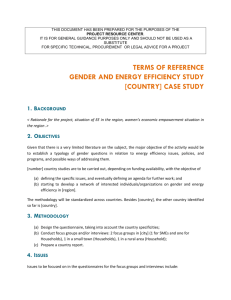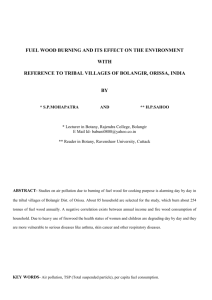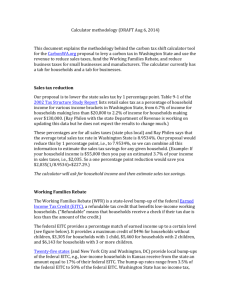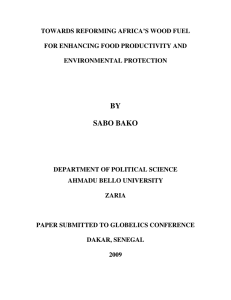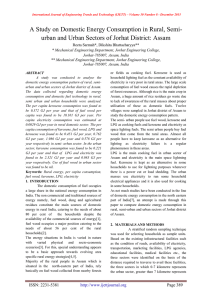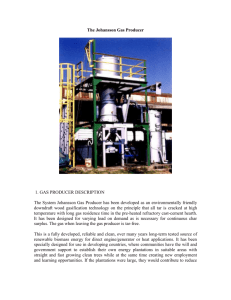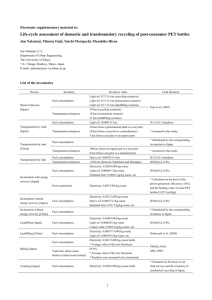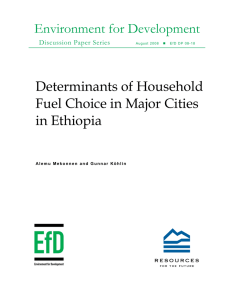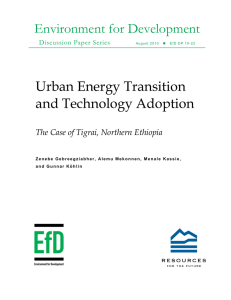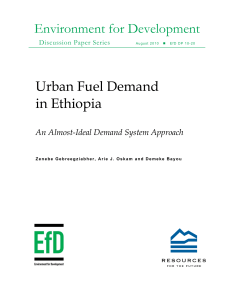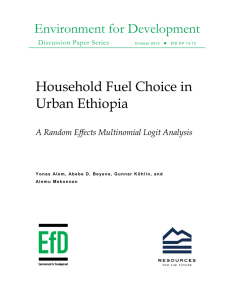Estimation of Wood consumption in the residential sector
advertisement
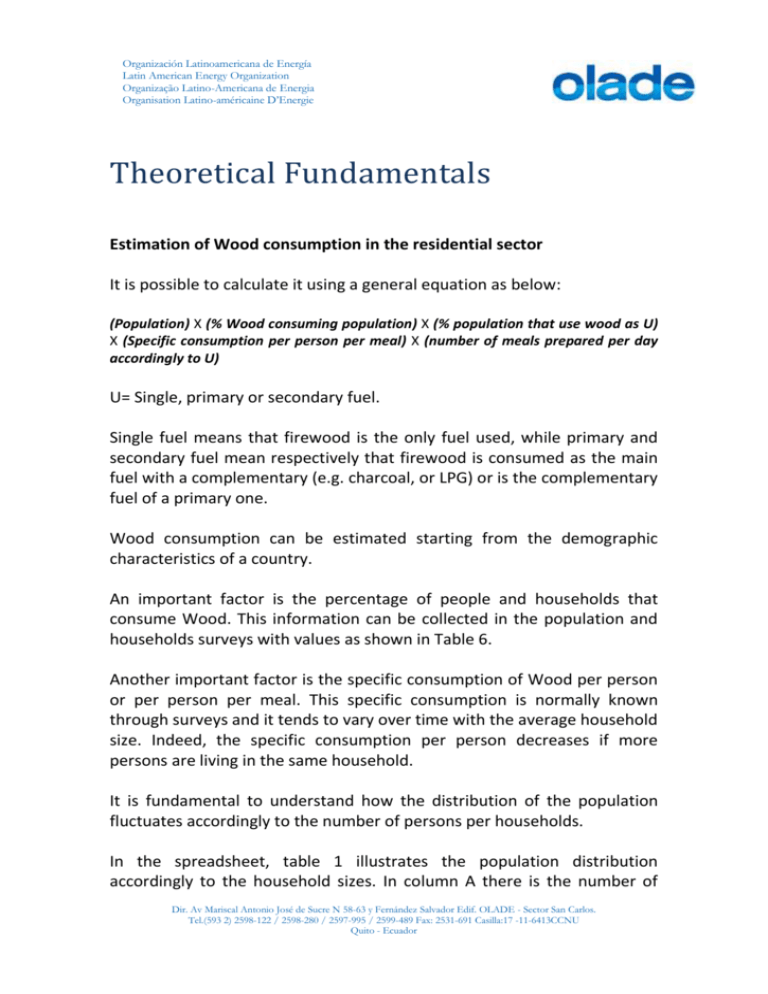
Organización Latinoamericana de Energía Latin American Energy Organization Organização Latino-Americana de Energia Organisation Latino-américaine D’Energie Theoretical Fundamentals Estimation of Wood consumption in the residential sector It is possible to calculate it using a general equation as below: (Population) X (% Wood consuming population) X (% population that use wood as U) X (Specific consumption per person per meal) X (number of meals prepared per day accordingly to U) U= Single, primary or secondary fuel. Single fuel means that firewood is the only fuel used, while primary and secondary fuel mean respectively that firewood is consumed as the main fuel with a complementary (e.g. charcoal, or LPG) or is the complementary fuel of a primary one. Wood consumption can be estimated starting from the demographic characteristics of a country. An important factor is the percentage of people and households that consume Wood. This information can be collected in the population and households surveys with values as shown in Table 6. Another important factor is the specific consumption of Wood per person or per person per meal. This specific consumption is normally known through surveys and it tends to vary over time with the average household size. Indeed, the specific consumption per person decreases if more persons are living in the same household. It is fundamental to understand how the distribution of the population fluctuates accordingly to the number of persons per households. In the spreadsheet, table 1 illustrates the population distribution accordingly to the household sizes. In column A there is the number of Dir. Av Mariscal Antonio José de Sucre N 58-63 y Fernández Salvador Edif. OLADE - Sector San Carlos. Tel.(593 2) 2598-122 / 2598-280 / 2597-995 / 2599-489 Fax: 2531-691 Casilla:17 -11-6413CCNU Quito - Ecuador Organización Latinoamericana de Energía Latin American Energy Organization Organização Latino-Americana de Energia Organisation Latino-américaine D’Energie persons per household, in column B the distribution of urban population, in column C the one of the rural population and in the column D the distribution of the total population. These data could be issued from the population and household survey for one year; however, they could be also calculated using the Poisson distribution whose equation is shown below: e x x x y x! y is the fraction of the population living in households of dimension equal to x, x is the average size of the households. It is possible to use the Poisson distribution for different values of x. Table 2 contains the Wood specific consumptions per person per meal in kg, depending on the fact that the firewood is used as single, primary or secondary fuel. These specific consumptions are obtained through surveys and measurements of wood consumption in households of different sizes. These specific consumptions can be represented by means of the following equation: ce( s) Ae Bs In the equation above A and B are parameters of regression and s is the size of the household. The values shown for A and B in Table 5 are typical values that could be used when results from surveys are not available. Table 7 shows the number of meals prepared per day for different firewood utilisation (i.e. single, primary or secondary fuel). The data of all these tables allow applying the first equation and obtaining the results in Table 3. Dir. Av Mariscal Antonio José de Sucre N 58-63 y Fernández Salvador Edif. OLADE - Sector San Carlos. Tel.(593 2) 2598-122 / 2598-280 / 2597-995 / 2599-489 Fax: 2531-691 Casilla:17 -11-6413CCNU Quito - Ecuador




